The Mercedes-Benz V12 engine represents the pinnacle of automotive engineering, offering unparalleled power, smooth operation, and a sound unlike any other. This guide demystifies its legendary status, explaining what makes it so special and how its enduring legacy continues to impress.
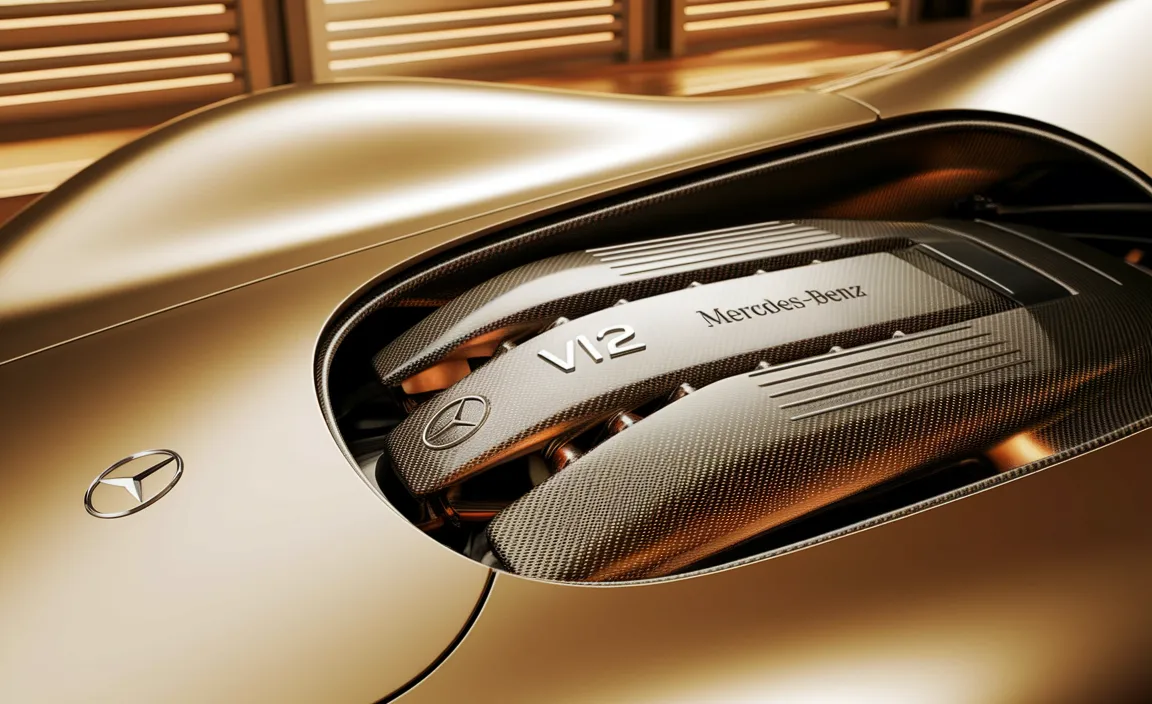
Mercedes V12 Engine: Proven Power and Engineering Excellence
If you’ve ever heard the deep, sonorous rumble of a Mercedes-Benz V12 engine, you know it’s something special. These aren’t just engines; they’re masterpieces of engineering that have powered some of the most iconic and luxurious Mercedes-Benz vehicles for decades. Many car owners wonder what makes the V12 so different and why it’s so revered. Is it really that powerful? Is it reliable? If you’ve been curious about this legendary powerplant, you’re in the right place. We’ll break down exactly what gives the Mercedes V12 its “proven power” and why it remains a symbol of automotive excellence, even as technology evolves.
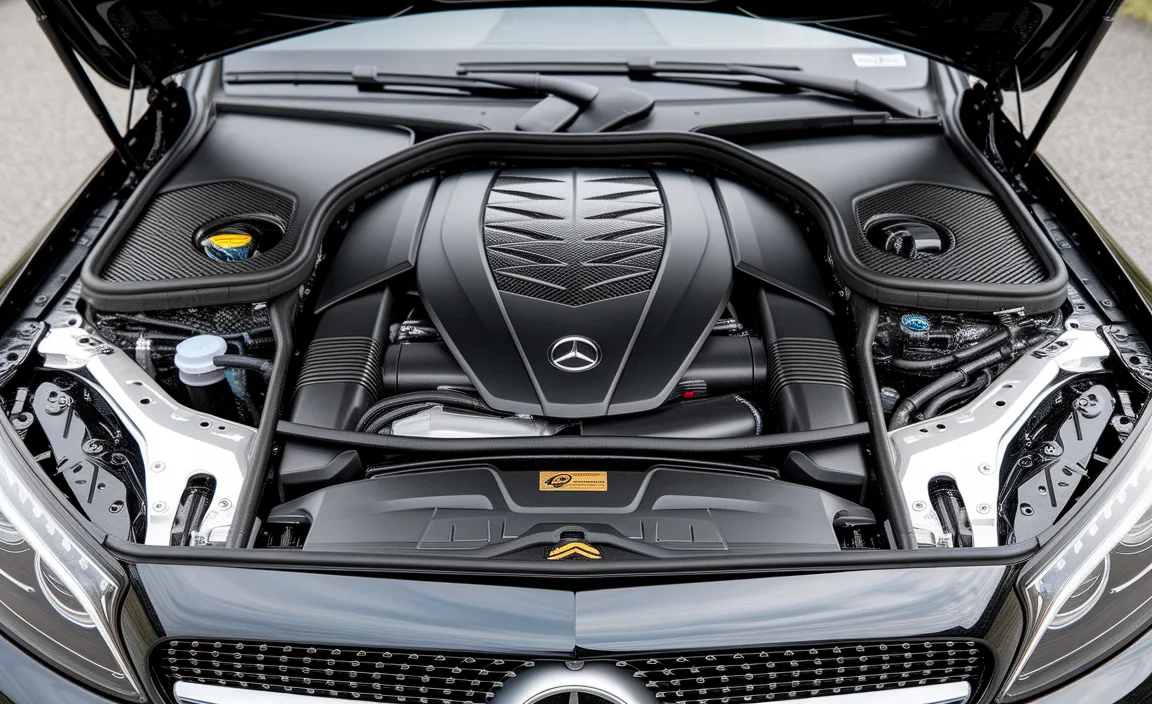
This guide is designed to be beginner-friendly. We’ll explore the core aspects of the V12, from its fundamental design to the technology that makes it purr. You’ll gain a clear understanding of what separates it from other engines and why it’s worth knowing about, whether you own one or just admire its capabilities. Let’s dive into the heart of Mercedes-Benz’s most powerful engines!
What is a V12 Engine? The Basics Explained
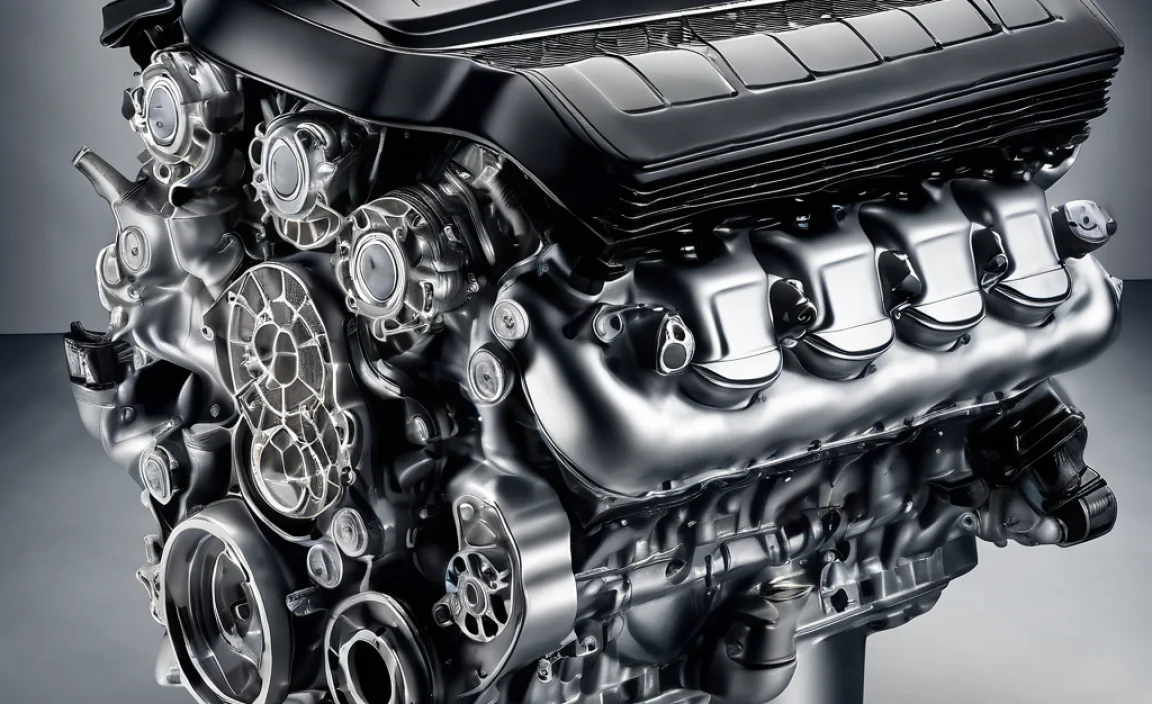
At its core, a V12 engine is a type of internal combustion engine. The “V” in V12 refers to the configuration of the cylinders. Imagine two rows of six cylinders each, arranged in a “V” shape. This setup creates a 12-cylinder engine. Why twelve? More cylinders generally mean more power and smoother operation because the power strokes (the part of the engine cycle where combustion happens and creates power) are more frequent and overlap more smoothly.
Think of it like a team of dancers. With more dancers (cylinders), the performance can be more continuous and less jerky. This is why V12 engines are known for their incredible smoothness and refinement, often described as a “turbine-like” feel. Each cylinder contributes to the engine’s overall output, and with twelve working in harmony, the result is substantial power delivered in a remarkably refined manner.
The Evolution of the Mercedes-Benz V12
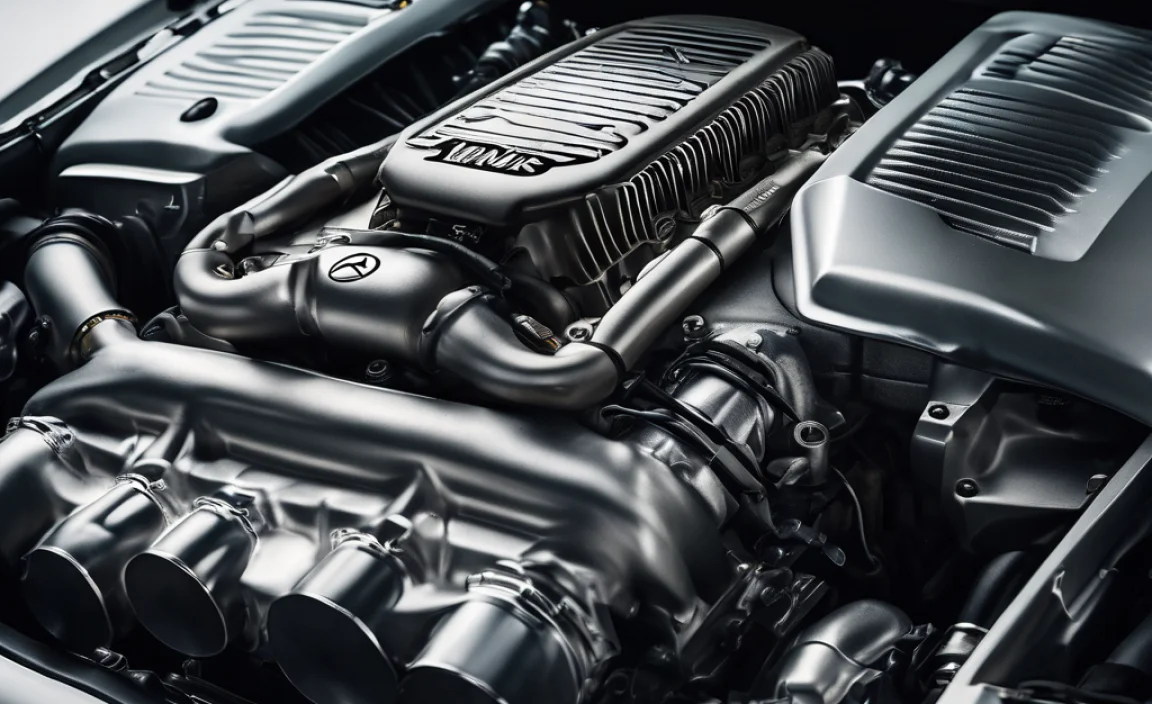
Mercedes-Benz has a long and storied history with the V12, first introducing it to the public in the S-Class sedan (W140 generation) in the early 1990s. This was a significant statement, positioning the V12 as the ultimate expression of luxury and performance. Over the years, Mercedes-Benz has refined and evolved this engine, incorporating cutting-edge technology to enhance its power, efficiency, and emissions control.
- Early Generations (M120): The initial V12 engines were naturally aspirated, meaning they relied solely on atmospheric pressure to fill the cylinders with air. These engines were known for their raw power and smooth delivery, setting a new benchmark for luxury sedans.
- Biturbo Era (M275/M279): A major leap came with the introduction of turbochargers. These engines, often found in flagship S-Class, CL-Class, and AMG models like the S65 and SL65, added significant horsepower and torque. Turbochargers essentially force more air into the engine, allowing for more fuel to be burned and thus more power to be generated.
- AMG Synergy: AMG, Mercedes-Benz’s performance division, has a special relationship with the V12. They have continuously pushed the boundaries, creating even more powerful and dynamic versions of the V12, often distinguishable by their roaring exhaust notes and blistering acceleration. Models like the Pagani Zonda, which often featured AMG-built V12 engines, further cemented the V12’s legendary status in the performance car world.
- Modern Advancements: While the V12 is increasingly being phased out by newer, more efficient technologies like hybrid powertrains, its legacy is undeniable. The latest iterations have focused on improving emissions and fuel economy while retaining that characteristic V12 grandeur.
What Makes the Mercedes V12 Engine Special?
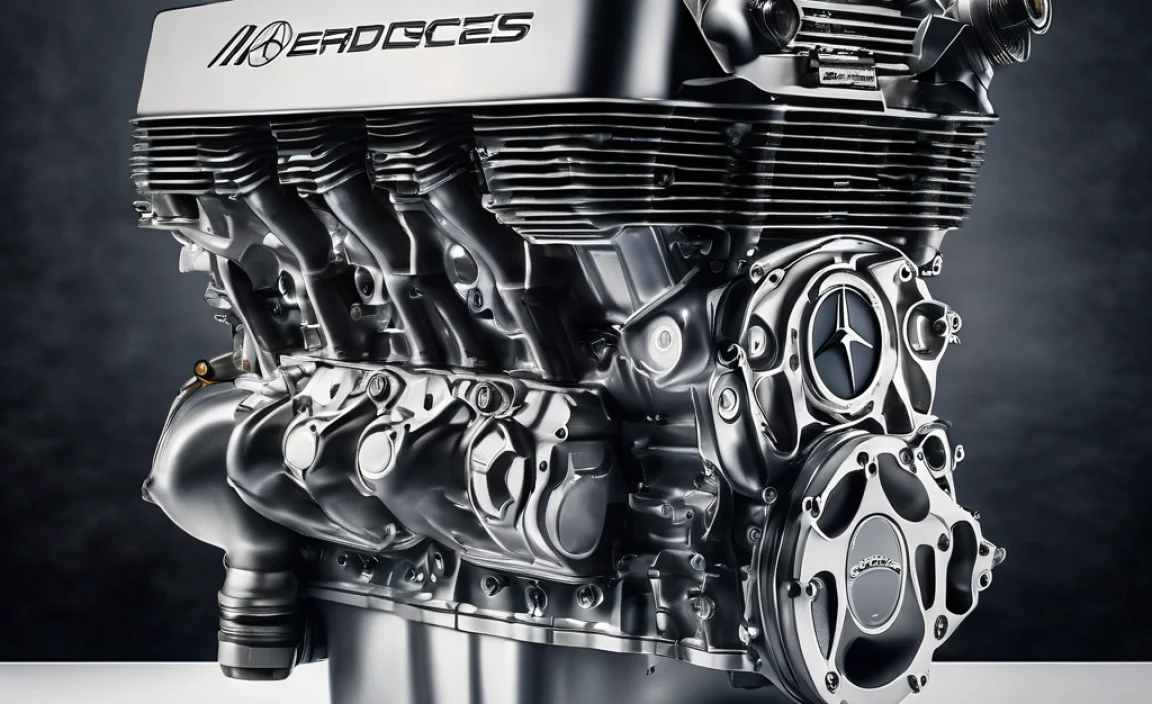
It’s not just about having twelve cylinders. Several key factors contribute to the Mercedes V12’s “proven power” and unique appeal:
- Smoothness and Refinement: With twelve cylinders firing in sequence, the V12 offers an unparalleled level of smoothness. The smaller displacement per cylinder compared to other larger engines, combined with the V configuration, minimizes vibrations. This translates into a serene driving experience, whether cruising on the highway or accelerating gently.
- Effortless Power Delivery: V12 engines, especially the turbocharged ones by Mercedes-AMG, produce immense torque. Torque is the rotational force that gets a car moving. This means acceleration is often described as “effortless” or “unstoppable.” The power surge is linear and strong, without the need to rev the engine excessively.
- Unique Sound: The V12 has a distinct exhaust note. At lower revs, it’s a deep, luxurious burble. As you accelerate, it can transform into a high-pitched, exotic howl, especially in AMG variants. It’s a sound that commands attention and defines performance luxury.
- Engineering Complexity and Craftsmanship: Building a V12 engine is a complex undertaking. Each engine is often hand-built by a single technician in a process known as “one man, one engine” at AMG. This meticulous craftsmanship ensures the highest quality and attention to detail, contributing to the engine’s reliability and performance.
- Prestige and Exclusivity: Historically, V12 engines have been reserved for Mercedes-Benz’s most exclusive and top-tier models. Owning a V12-powered Mercedes-Benz signifies being at the pinnacle of automotive luxury and engineering prowess.
Key Components and Technologies
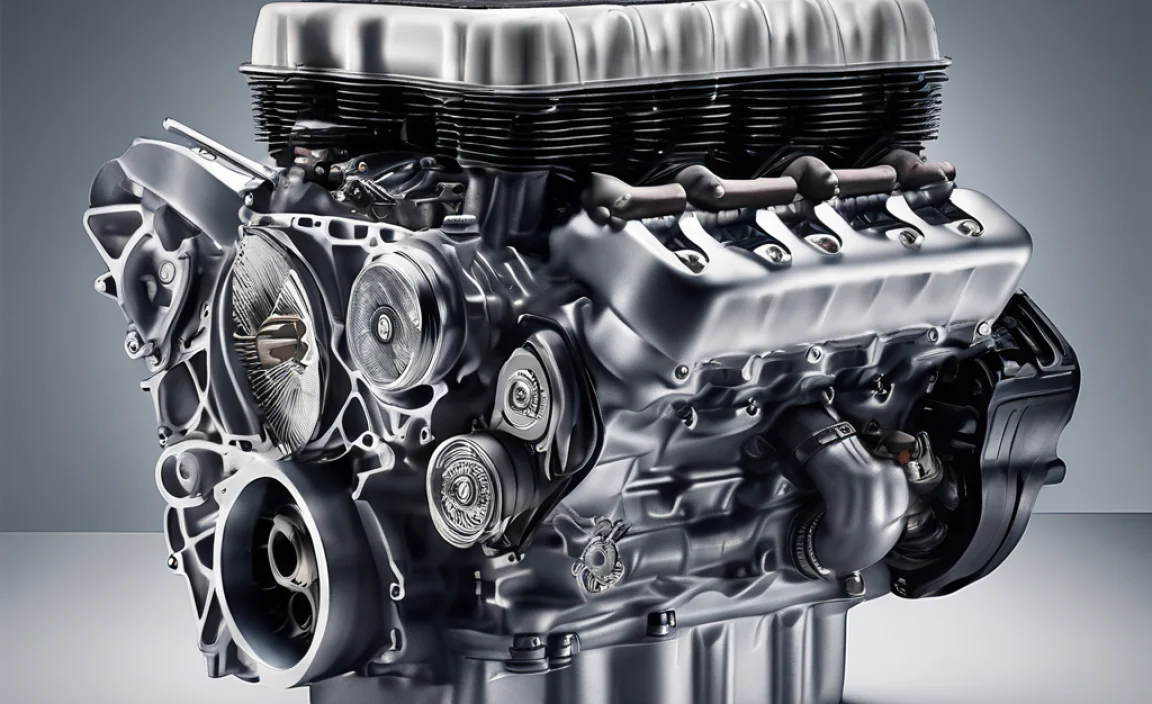
While the basic V12 configuration is fundamental, Mercedes-Benz employs sophisticated technologies to make its V12 engines perform. Here are some of the key ones:
- Twin-Turbocharging: Most modern Mercedes-Benz V12s, particularly those from AMG, feature twin-turbochargers. These devices use exhaust gases to spin turbines, which in turn compress incoming air. More compressed air means more oxygen, allowing the engine to burn more fuel and generate significantly more power and torque than a naturally aspirated engine. This technology is crucial for achieving the V12’s legendary performance.
- Direct Fuel Injection: This system injects fuel directly into the combustion chamber under high pressure. It allows for more precise control over fuel delivery, leading to improved efficiency, more power, and reduced emissions.
- Variable Valve Timing: This technology adjusts the timing of the intake and exhaust valves opening and closing. It helps optimize engine performance across different RPM ranges, improving both power and fuel economy.
- Advanced Cooling Systems: With such a large and powerful engine, maintaining optimal operating temperatures is critical. Mercedes-Benz V12s incorporate robust cooling systems, including multiple radiators and intercoolers (for turbocharged engines), to dissipate heat effectively and ensure consistent performance.
- Sophisticated Engine Management Systems (ECU): The Engine Control Unit is the “brain” of the engine. It monitors hundreds of parameters in real-time (air temperature, engine speed, throttle position, etc.) and makes constant adjustments to fuel injection, ignition timing, and turbocharger boost to maximize performance, efficiency, and emissions control.
Mercedes V12 Engine Specs: A Glimpse
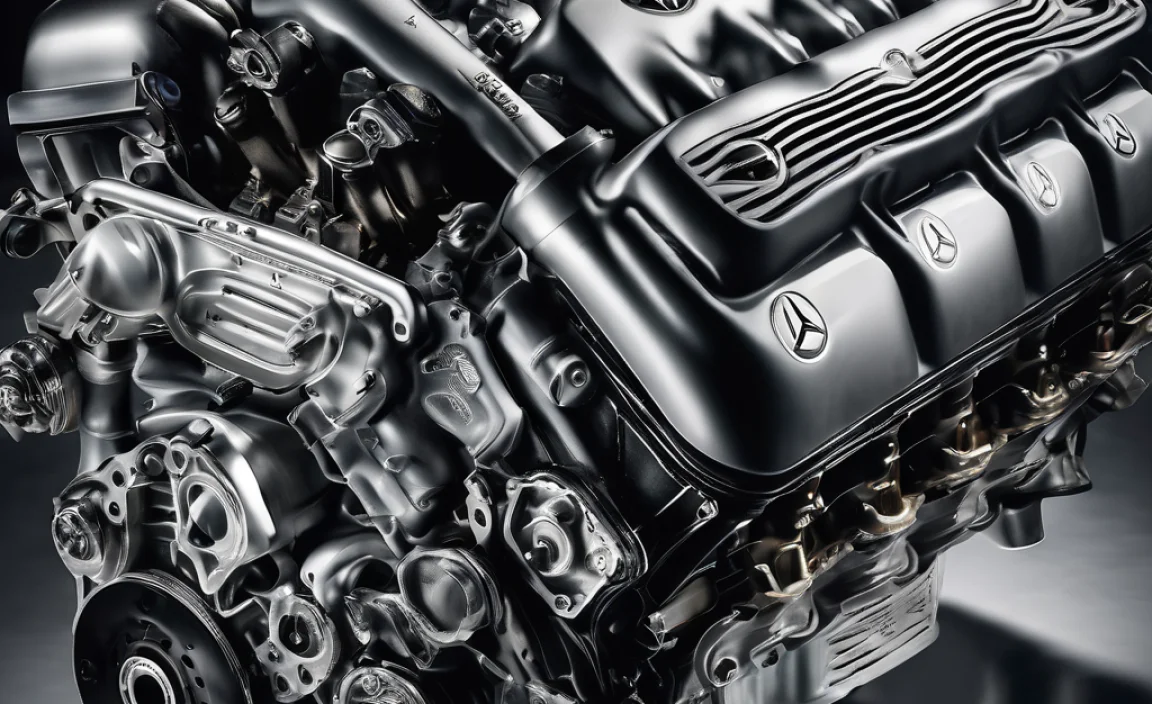
To illustrate the power and capabilities, let’s look at some specifications of notable Mercedes-Benz V12 engines. Keep in mind that AMG models often boast significantly higher outputs due to their performance tuning.
| Engine Code | Configuration | Displacement | Naturally Aspirated/Turbocharged | Typical Horsepower (approx.) | Typical Torque (approx.) | Notable Models |
|---|---|---|---|---|---|---|
| M120 | V12 | 6.0L | Naturally Aspirated | 394 hp | 420 lb-ft | S600 (W140), SL600 (R129) |
| M275 | V12 Biturbo | 5.5L | Twin-Turbocharged | 500-510 hp | 612-738 lb-ft | S65 AMG (W221), CL65 AMG (C216) |
| M279 | V12 Biturbo | 6.0L | Twin-Turbocharged | 621-630 hp | 738-752 lb-ft | S65 AMG (W222), G65 AMG (W463), SL65 AMG (R231) |
As you can see, even the non-AMG versions provided substantial power. The AMG variants, often featuring higher boost pressures and performance tuning, pushed these numbers to incredible levels, creating some of the fastest luxury cars ever made. For instance, the AMG versions often achieved torque figures that were electronically limited to protect the drivetrain, hinting at even greater untapped potential.
Maintenance for Your V12 Mercedes
While V12 engines are built with robust engineering, they still require proper maintenance to ensure their longevity and optimal performance. If you own a V12 Mercedes-Benz, here are some key maintenance points:
- Regular Oil Changes: This is the most crucial aspect. Use high-quality synthetic oil recommended by Mercedes-Benz for your specific model. The large displacement and high performance of a V12 generate considerable heat and stress, making clean oil essential for lubrication and cooling. Follow the owner’s manual for the recommended change intervals, which are usually around 10,000 miles or once a year. You can find detailed guides on oil changes for Mercedes models on reputable automotive support sites.
- Spark Plug Replacement: As V12 engines have twelve spark plugs, this is a more involved task than on a typical engine. Replace them according to the manufacturer’s schedule, which can be quite extensive (e.g., every 60,000 to 100,000 miles, depending on the engine).
- Coolant System Maintenance: The complex cooling system needs to be kept in good condition. Regularly check coolant levels, and flush and replace the coolant at the recommended intervals to prevent corrosion and overheating, especially important for high-performance engines.
- Air Filter and Cabin Filter: These are relatively simple replacements that ensure the engine breathes clean air and the cabin environment remains fresh. They should be checked and replaced during regular servicing.
- Belts and Hoses: Inspect all drive belts and hoses for signs of wear, cracking, or leaks. A worn belt can lead to alternator failure, power steering issues, or even engine overheating if it drives the water pump.
- Fluid Checks: Beyond engine oil and coolant, regularly check transmission fluid, brake fluid, and power steering fluid levels.
Crucially, for complex V12 maintenance tasks or diagnostics, it’s always best to consult a qualified Mercedes-Benz technician. These engines are intricate, and improper work can lead to expensive damage. However, for simpler tasks like checking fluid levels or replacing air filters, you can often do it yourself with the right tools and guidance.
Troubleshooting Common V12 Issues (Beginner Level)
While Mercedes V12s are generally reliable, like any complex machine, they can encounter issues. Here are a few common, beginner-level things to look out for:
- Warning Lights on the Dashboard: If a warning light illuminates, don’t ignore it. Consult your owner’s manual to understand the potential meaning of the light. For many common issues like a check engine light, you might need a diagnostic scan tool. Basic OBD-II scanners can read trouble codes, which can give you a starting point for diagnosis. The National Highway Traffic Safety Administration (NHTSA) provides information on OBD-II standards, which govern these diagnostic systems.
- Rough Idling or Misfires: This could be due to a number of reasons, including a faulty spark plug, ignition coil, or an issue with fuel delivery. If you notice the engine running less smoothly, especially when stopped, it’s a sign something needs attention.
- Overheating: If the temperature gauge climbs into the red, stop the car safely as soon as possible. Check the coolant level (only when the engine is cool!). If it’s low, you might have a leak. If the coolant level is fine but it’s still overheating, the thermostat or water pump might be faulty, or there could be a blockage in the cooling system.
- Fluid Leaks: Any spotting of fluid under your car should be investigated. Different colored fluids indicate different issues (e.g., oil is typically brown/black, coolant is often green, red, or orange, power steering fluid can be amber/red).
For any of these issues that you can’t easily diagnose or fix yourself, it’s always safest to bring your Mercedes-Benz to a dealership or a certified independent Mercedes-Benz specialist. They have the specific tools, knowledge, and genuine parts needed to properly service these high-performance vehicles.
The Future of the V12 Engine
The automotive industry is rapidly shifting towards electrification and more sustainable powertrains. This means the traditional V12 engine, a symbol of gasoline-powered performance, is becoming increasingly rare. Increasingly stringent emissions regulations and the drive for fuel efficiency are leading automakers to explore alternatives.
Mercedes-Benz, like many manufacturers, has been investing heavily in hybrid technology and fully electric vehicles. While some manufacturers are continuing to develop hybrid versions of their V12s, offering a blend of V12 power with electric assistance for improved efficiency and torque, the long-term future of the pure V12 as a mainstream option is uncertain. However, its legacy is secure. The V12 will forever be remembered as an icon of automotive achievement, representing a golden era of luxury performance and engineering prowess.
Many enthusiasts believe that V12 models will become highly collectible in the future, prized for their unique character and mechanical artistry. Their smooth power, distinctive sound, and the sheer engineering marvel they represent ensure their place in automotive history.
Frequently Asked Questions (FAQ)
What makes the V12 engine sound so unique?
The V12’s distinctive sound comes from its firing order and the large number of cylinders. The V12 design allows for a more continuous exhaust pulse, resulting in a deep, smooth, and often sonorous tone that is different from V8 or V6 engines. In AMG versions, the performance tuning and exhaust systems amplify this into a potent roar.
Are V12 Mercedes engines reliable?
When properly maintained with high-quality parts and regular service, Mercedes-Benz V12 engines are generally very reliable and durable. However, due to their complexity and high-performance nature, maintenance can be more expensive than for smaller engines. It’s crucial to follow the recommended service intervals meticulously.
What is the difference between naturally aspirated and turbocharged V12s?
A naturally aspirated V12 relies on atmospheric pressure to draw air into the cylinders. A turbocharged V12 uses turbochargers to force extra air into the cylinders, significantly increasing power and torque. Biturbo means there are two turbochargers, which is common in many modern V12 Mercedes-Benz models.
Which Mercedes-Benz models typically come with a V12 engine?
Historically, V12 engines were found in Mercedes-Benz’s top-tier luxury models and flagship performance cars, such as various S-Class (S600, S65 AMG), SL-Class (SL600, SL65 AMG), CL-Class (CL600, CL65 AMG), and some Maybach models. Certain rare AMG models and specialized vehicles also featured them.
Is owning a V12 Mercedes-Benz expensive to maintain?
Yes, generally speaking, maintenance and repair costs for a V12 Mercedes-Benz will be higher than for models with smaller engines. This is due to more complex systems, more components (like twelve spark plugs), and the use of specialized parts and labor. However, for many owners, the unparalleled driving experience justifies the cost.
Can I DIY maintenance on a V12 Mercedes?
Simple maintenance tasks like checking fluid levels, changing air filters, or checking tire pressure can often be performed by a capable DIYer. However, for more in-depth work, such as engine diagnostics, internal engine repairs, or complex electrical issues, it is highly recommended to use a qualified Mercedes-Benz technician or a specialist shop. The complexity of the V12 demands expert knowledge and specialized tools.
Conclusion
The Mercedes-Benz V12 engine is more than just an engine; it’s a statement of engineering excellence and automotive passion. Its proven power, unparalleled smoothness, and distinctive character have solidified its place as an icon in the automotive world. From the early naturally aspirated giants to the mighty biturbo powerhouses developed by AMG, the V12 has consistently delivered an experience that transcends mere transportation.
While the automotive landscape shifts towards new technologies, the legacy of the V12 endures. For those who have had the pleasure of experiencing one, the unique blend of effortless performance and refined luxury is unforgettable. Maintaining these magnificent machines with care ensures their continued performance and enjoyment for years to come, a testament to the pinnacle of internal combustion engineering that the Mercedes-Benz V12 represents.